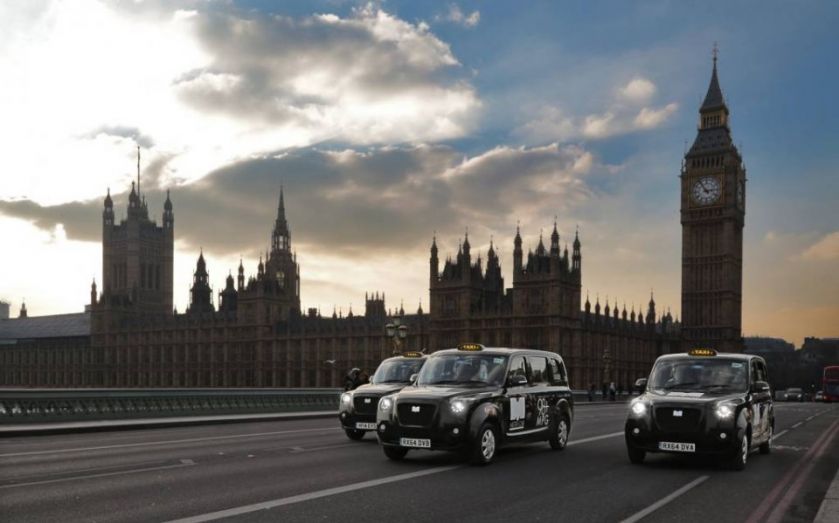This morning I rode to work in a Metrocab, London’s first electric taxi – is this black cabbies’ Uber-killer?

Since taxi app Uber launched in London two years ago, the capital's traditional cabbies have developed something of an image problem. With various strikes and lawsuits on the go, the Licensed Taxi Drivers' Association (LTDA) has lost the sympathy of many of its passengers by appearing stubborn, protectionist and out of date.
But now cabbies could have a more positive weapon in their arsenal: the Metrocab, London's first fully electric cab, went on trial in earlier this year. Its design may pay homage to the traditional Hackney Carriage, but the technology behind it is light years ahead of traditional forebears. Like many Uber cars, it's environmentally friendly, clean and modern. Could this help cabbies beat Uber?
There's clearly a lot of interest in the Metrocab among traditional cabbies. When I meet him a few minutes late this morning, my driver, Preston Morris, has already attracted the attention of a colleague, who has pulled up alongside him to ask about his taxi.
"It's sometimes a bit like a stuck record," he confesses later. "I find myself saying the same things over and over."
At 7am, London's streets are quiet – and without the rattle of the engine, you can appreciate their peacefulness. Turn on the sound here to have a listen.
The cab may look massive, but it's actually three inches shorter than a traditional black cab, says Morris – although it has room for seven passengers, rather than five. With space for someone to sit in the front passenger seat, it's a friendlier proposition than in Hackney Carriages.
Morris says he plugs the cab in overnight, which gives him a range of 35 miles.
"It might not sound like much," he adds. "But it's a lot in central London, bearing in mind that at rush hour, it can take you half an hour to do half a mile."
During the day, the battery can be charged with a "small petrol engine", but he's keen to point out the engine doesn't power the motor – it's only used for charging. With 75 miles to the gallon, it's advertised as three times more fuel efficient than the compatible London taxi. Given the capital's recent encounter with a toxic smog cloud, that's not to be sniffed at.
And with its glass roof, it's more tourist-friendly than Uber cars. Here's the Walkie Talkie, photographed from the comfort of my seat.

Metrocab has other competition, in the form of new designs from the company formerly known as Manganese Bronze, the original manufacturer of London's black cabs which was taken over by Chinese firm Geely for £250m in 2013. Last month the company announced plans to build 36,000 electric and ultra-low emission vehicles a year at a site in the Midlands.
But a glass roof and a friendly driver may be enough to give Uber – with its army of drivers, aggressive price-cutting strategy and natty app – a run for its money. Nevertheless: with its eco-friendly engine, it may be a clean fight – but it won't be an easy one.